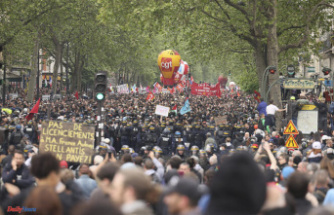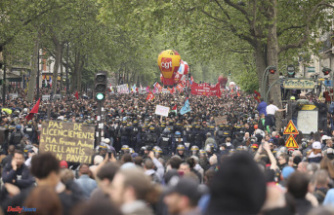More and more citizens are complaining to the Federal Network Agency about lost or late letters. Demands for sanctions are getting louder. The post admits problems.
Out of anger about late or lost letters, complaints to the Federal Network Agency skyrocket. Around 9,700 complaints were received in October, almost twice as many as in September (5,000), the Bonn regulatory authority said. In the course of the year so far there have been more than 30,000 complaints, twice as many as in the whole of the previous year (15,000). "The trend of increasing complaints continues," said the network agency.
The Post speaks of "local problems" and justifies them with a high number of corona sickness and a tense job market. The complaints can be directed against all German parcel and letter service providers.
This year, most of the critical reports are about deficiencies in letter delivery at Deutsche Post, which transports around 1.2 billion letters every month. The network agency is a point of contact for complaints, but the authority cannot do much. If there is a regional accumulation of complaints, she initiates so-called event reviews, which are a kind of written warning.
The head of the network agency, Klaus Müller, recently called for his authority to be given sanctions and thereby increase the pressure on Swiss Post. This could be regulated in the forthcoming postal law reform. "We are receiving an unusually large number of complaints at the moment," he said. "We urge a speedy improvement in the situation." However, the legal possibilities of the authority in the case of late or undelivered letters are limited.
Representatives of the FDP parliamentary group and the opposition CDU/CSU in the Bundestag assessed the initiative by the former Green politician Müller positively. The Post, in turn, argues that sanctions would not help in such "challenging situations".












